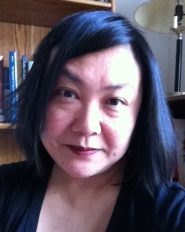
The University of British Columbia is the only Canadian university to offer a comprehensive, for-credit Cantonese language program.
For the most up-to-date information on the UBC Cantonese Language Program, please visit cantonese.arts.ubc.ca.
Register now
View course on Workday Student
Instructors
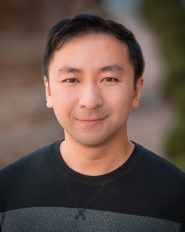 Raymond Pai is Lecturer of Cantonese at the University of British Columbia, Vancouver. He teaches all levels of Cantonese courses and collaborates with the local community and organizations on various projects related to Cantonese and its culture. He received his MA in Linguistics and TESOL certificate from Brigham Young University. Having taught Chinese at the Defense Language Institute and the Middlebury Institute of International Studies in Monterey, California, he also worked as a certified translator and interpreter in California, and currently is the Cantonese examiner for the University of Arizona. A native of Hong Kong, Raymond’s research and teaching interests include language learning motivation, language technology and testing, and psycholinguistics. He is also a performer in music and theatre both locally and on stages across the globe.
Raymond Pai is Lecturer of Cantonese at the University of British Columbia, Vancouver. He teaches all levels of Cantonese courses and collaborates with the local community and organizations on various projects related to Cantonese and its culture. He received his MA in Linguistics and TESOL certificate from Brigham Young University. Having taught Chinese at the Defense Language Institute and the Middlebury Institute of International Studies in Monterey, California, he also worked as a certified translator and interpreter in California, and currently is the Cantonese examiner for the University of Arizona. A native of Hong Kong, Raymond’s research and teaching interests include language learning motivation, language technology and testing, and psycholinguistics. He is also a performer in music and theatre both locally and on stages across the globe.
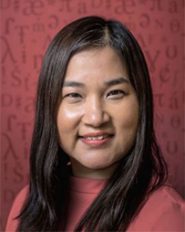 Zoe Lam is a sessional lecturer at UBC Asian Studies, where she teaches Basic Cantonese for Mandarin Speakers. She received her B.A. in Modern Languages and Intercultural Studies and M.Phil. in Linguistics from the Chinese University of Hong Kong, and had taught a variety of language-related subjects at the Hong Kong Polytechnic University. Recently she received her Ph.D. in Linguistics at UBC, where she did research on Cantonese phonetics and heritage language maintenance in Canada. Her Ph.D. project investigates how heritage speakers of Cantonese in Canada perceive tones. As an advocate of knowledge mobilization, Zoe works closely with community members, and was the instructor of a Cantonese Saturday School held at the historic Mon Keang School in Vancouver Chinatown. She was invited to speak about her Cantonese-related academic and community work at local and international media outlets, including CBC Radio, Vancouver Sun, Metro News, Fairchild Radio, South China Morning Post, and Singtao Daily.
Zoe Lam is a sessional lecturer at UBC Asian Studies, where she teaches Basic Cantonese for Mandarin Speakers. She received her B.A. in Modern Languages and Intercultural Studies and M.Phil. in Linguistics from the Chinese University of Hong Kong, and had taught a variety of language-related subjects at the Hong Kong Polytechnic University. Recently she received her Ph.D. in Linguistics at UBC, where she did research on Cantonese phonetics and heritage language maintenance in Canada. Her Ph.D. project investigates how heritage speakers of Cantonese in Canada perceive tones. As an advocate of knowledge mobilization, Zoe works closely with community members, and was the instructor of a Cantonese Saturday School held at the historic Mon Keang School in Vancouver Chinatown. She was invited to speak about her Cantonese-related academic and community work at local and international media outlets, including CBC Radio, Vancouver Sun, Metro News, Fairchild Radio, South China Morning Post, and Singtao Daily.
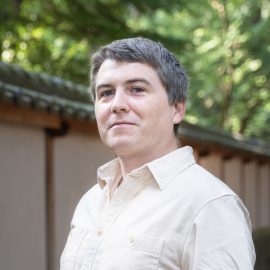 Liam Doherty is a sessional lecturer teaching in the Cantonese Language Program, with a background in Chinese as an Additional Language Education and a particular interest in digital literacy and multilingualism, translation, corpus linguistics, and the use of open data-driven digital tools to help better understand, learn, and teach languages. He has previously taught Chinese Grammar and Usage I & II in the Department of Asian Studies, as well as courses on Translation and Global Citizenship in the Department of Language and Literacy Education.
Liam Doherty is a sessional lecturer teaching in the Cantonese Language Program, with a background in Chinese as an Additional Language Education and a particular interest in digital literacy and multilingualism, translation, corpus linguistics, and the use of open data-driven digital tools to help better understand, learn, and teach languages. He has previously taught Chinese Grammar and Usage I & II in the Department of Asian Studies, as well as courses on Translation and Global Citizenship in the Department of Language and Literacy Education.

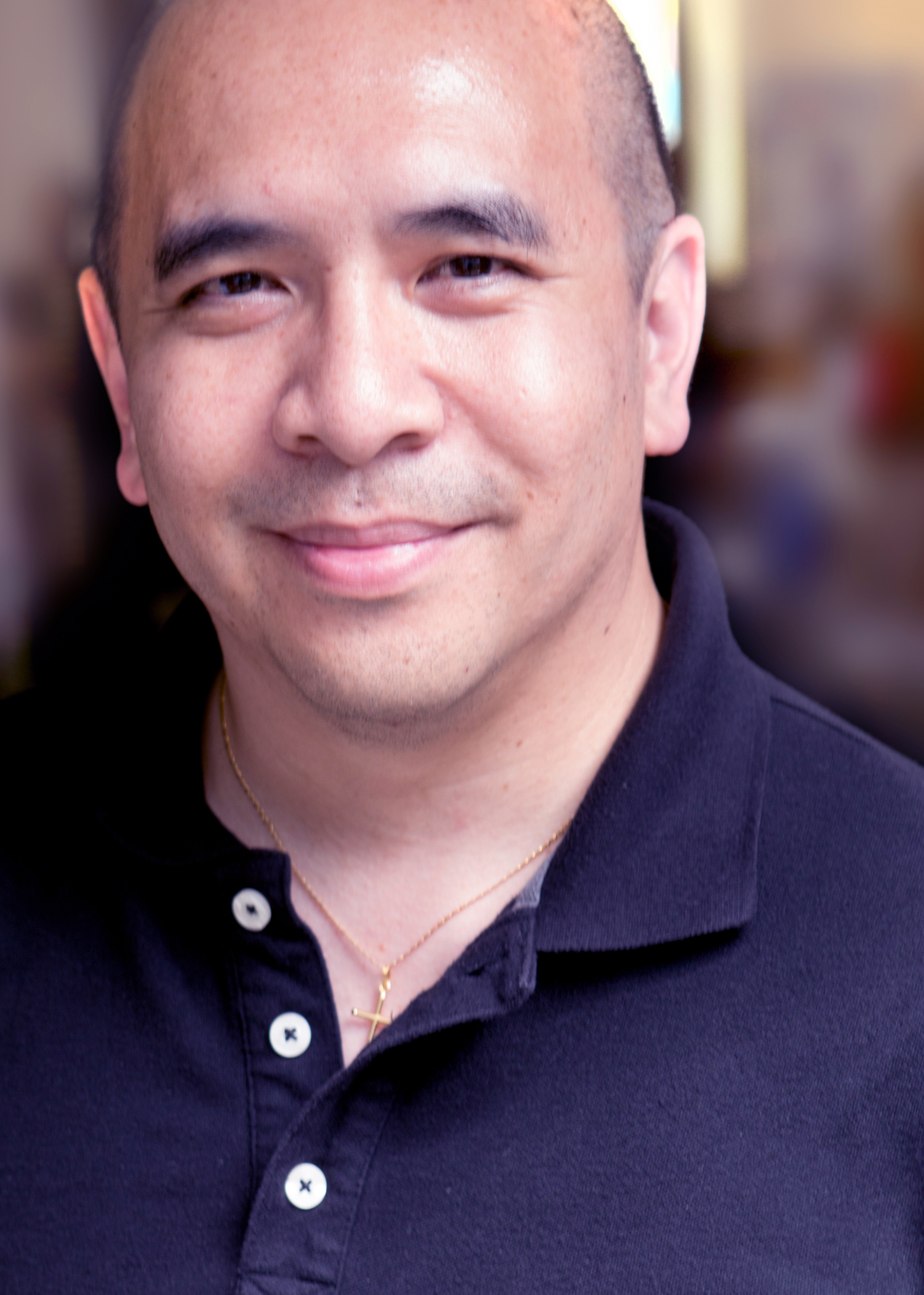

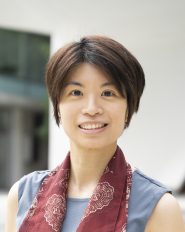


























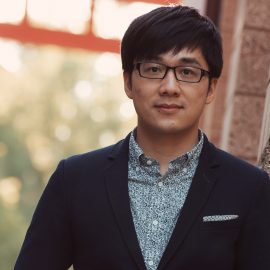 Renren Yang’s research and teaching span twentieth-and twenty-first-century Chinese literature, cinema, and popular culture, with a focus on issues of authorship, mediation, and hybrid genres in Chinese literary and media scenes. His current book project, “A Media Genealogy of Literary Fame in Modern China: Paper, Stage, Screen, and Sphere,” traces the changing concepts, practices, and politics of celebrity authorship throughout twentieth-century Chinese history with the ongoing shift from the print to the digital regime of letters. He also published articles on Chinese web novels and surveillance cinema. Prior to moving to UBC, he taught first-year seminars at Stanford University.
Renren Yang’s research and teaching span twentieth-and twenty-first-century Chinese literature, cinema, and popular culture, with a focus on issues of authorship, mediation, and hybrid genres in Chinese literary and media scenes. His current book project, “A Media Genealogy of Literary Fame in Modern China: Paper, Stage, Screen, and Sphere,” traces the changing concepts, practices, and politics of celebrity authorship throughout twentieth-century Chinese history with the ongoing shift from the print to the digital regime of letters. He also published articles on Chinese web novels and surveillance cinema. Prior to moving to UBC, he taught first-year seminars at Stanford University.